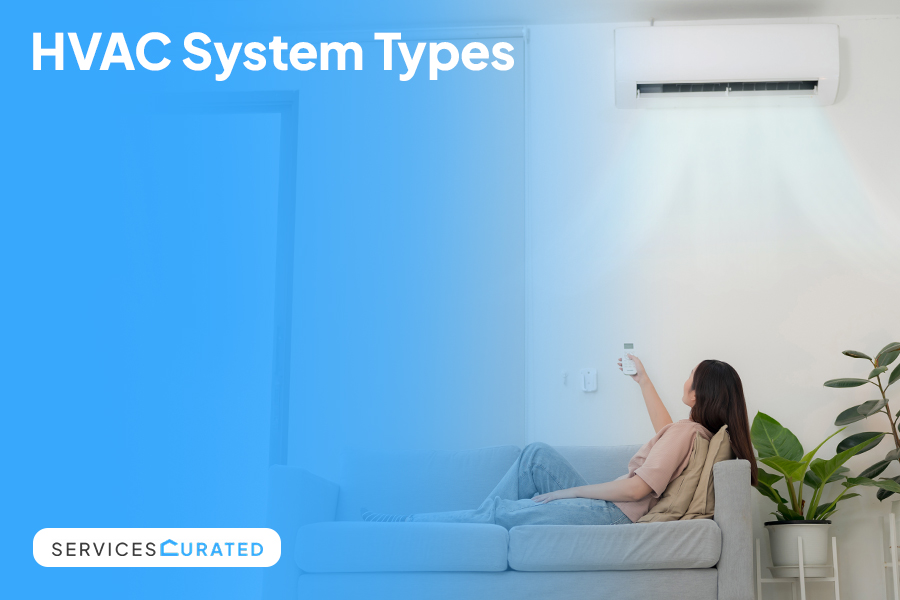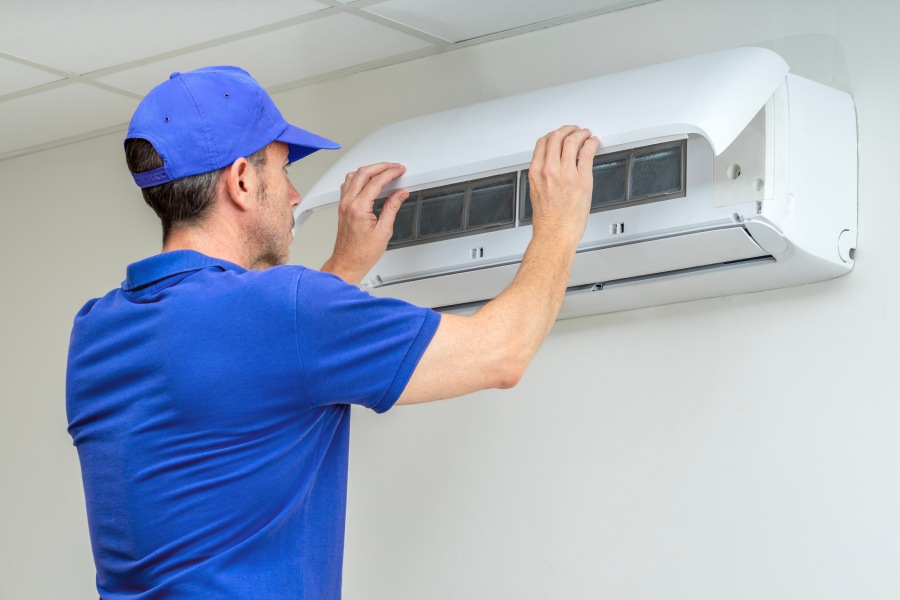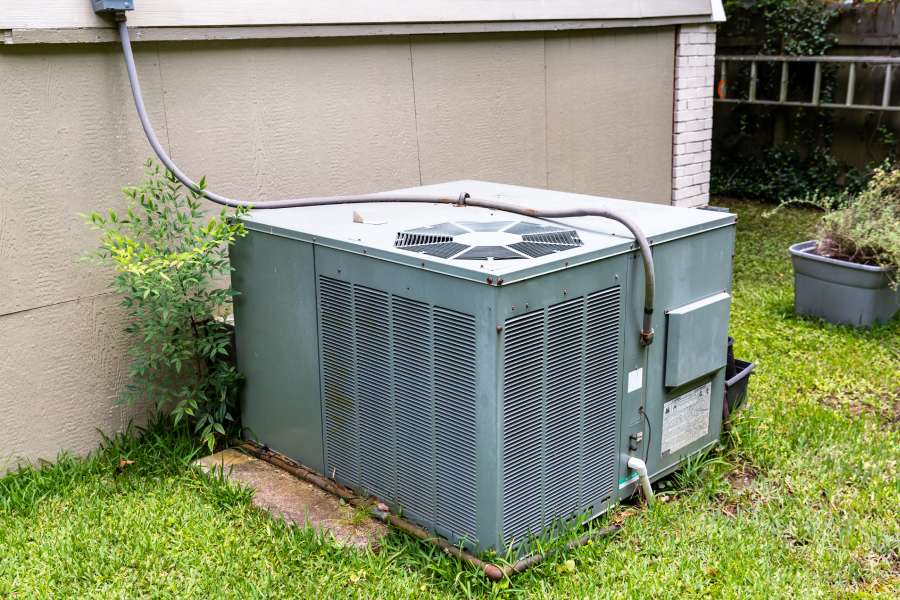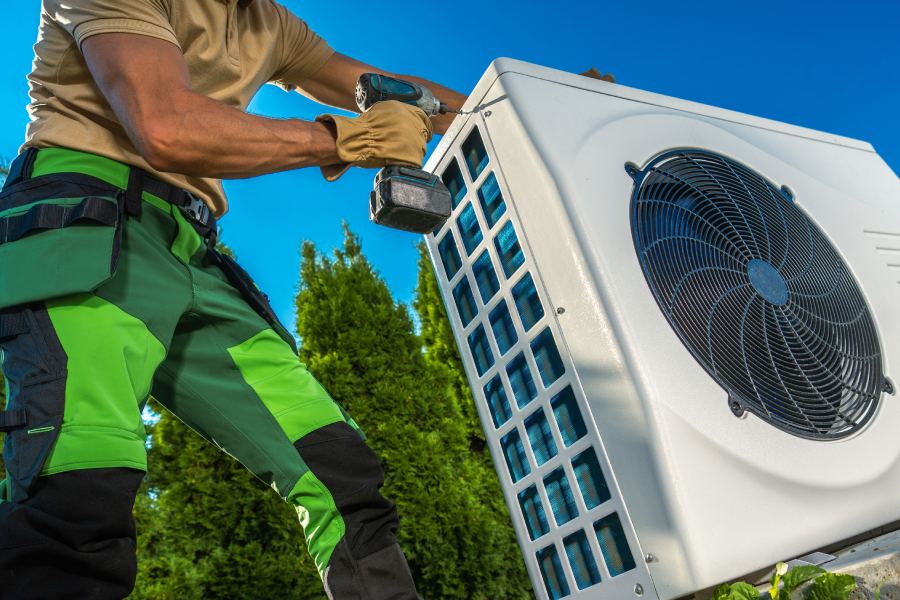HVAC System Types

The world of heating, ventilation, and air conditioning (HVAC) is a complex field that plays a crucial role in your daily life. Choosing the right HVAC system is crucial for maintaining comfort and efficiency in your home. With various HVAC system types available, each offering unique features and benefits, it can be challenging to determine which one best suits your needs.
In this guide, we’ll explore the various types of HVAC systems, their advantages, and key considerations, ensuring you find the perfect solution. Ready to enhance your home’s comfort and efficiency?
Let’s start!

Understanding HVAC System Types
HVAC systems come in various types, each designed to address specific needs in residential and commercial settings. They are crucial for maintaining comfortable indoor environments by regulating temperature, humidity, and air quality.
In residential settings, common options include central air systems, ductless mini-splits, and heat pumps. In commercial buildings, more complex systems such as rooftop units, variable refrigerant flow (VRF) systems, and chilled water systems are often used.
The significance of HVAC systems goes beyond mere comfort. They are vital for enhancing workplace productivity, ensuring good indoor air quality by filtering out pollutants and promoting energy efficiency. Modern HVAC systems feature advanced technologies that optimize performance, reduce energy consumption, and lower operating costs.
Types of HVAC Systems
Central HVAC systems
Central HVAC systems provide heating and cooling from a single unit, distributing air through ductwork. They consist of key components like the air handler, compressor, and condenser.
These systems offer consistent temperature control and centralized operation, making them suitable for larger spaces. However, they come with higher installation costs and potential ductwork inefficiencies. Also, central systems require regular maintenance to ensure optimal performance and energy efficiency.
Ductless mini-split systems
Ductless mini-split systems operate without ductwork, offering an alternative to traditional central HVAC. They consist of an outdoor compressor unit connected to one or more indoor air-handling units.
These systems are ideal for room additions, older homes without existing ductwork, and multi-family housing. Ductless systems provide energy efficiency, flexibility in installation, and precise zone control.
However, they have higher upfront costs and require more frequent maintenance of individual units. Despite these drawbacks, their ability to provide customized comfort solutions makes them increasingly popular in various applications.
Heat pump systems
Air-source heat pumps
Air-source heat pumps are versatile HVAC systems that provide both heating and cooling by transferring heat between indoor and outdoor air. They work best in moderate climates and are measured by SEER for cooling and HSPF for heating efficiency.
These systems are energy-efficient and eco-friendly, as they move heat rather than generate it. They offer the advantage of combined heating and cooling in one system. However, their efficiency can decrease in extremely cold weather, and they may have higher upfront costs than traditional HVAC systems.
Geothermal heat pumps
Geothermal heat pumps, also known as ground-source heat pumps, use the earth’s constant temperature to heat and cool homes. They consist of a heat pump unit, a ground loop of pipes, and a distribution system.
These highly efficient systems might reduce energy use by up to 70% for heating and cooling. They are environmentally friendly and have a long lifespan. However, geothermal systems have high installation costs due to the need for extensive excavation.
Their suitability is also site-specific, depending on factors like soil type and available land area. Despite these challenges, their long-term energy savings and environmental benefits make them an attractive option for many homeowners.
Packaged HVAC systems
Packaged HVAC systems are all-in-one units that contain all components in a single cabinet. They are commonly used in commercial spaces and some residential applications. They come in various types, including packaged air conditioners, heat pumps, and gas/electric systems, each suited to different climate needs.
These systems offer advantages such as space-saving design and simplified installation, making them ideal for buildings with limited indoor space. Yet, they may have slightly reduced efficiency compared to split systems and are more exposed to outdoor elements.
Packaged units are popular in retail stores, restaurants, and offices because they can handle large cooling and heating loads. While they have some limitations in placement options, their compact design and ease of maintenance make them a practical choice for many commercial and residential settings.

Hybrid systems
Operation and benefits
Hybrid HVAC systems combine a heat pump with a furnace, offering a flexible and efficient heating solution. These systems optimize energy use by switching between the heat pump and furnace based on outdoor temperatures. They use smart controls to determine the most efficient operation.
The heat pump operates in milder conditions, while the furnace takes over in extreme cold. This dual-fuel approach provides significant advantages, including energy savings, reduced carbon footprint, and year-round comfort.
Challenges and considerations
Hybrid systems have challenges such as complex installation, higher initial costs, and more involved maintenance requirements. They also require more space to accommodate both components.
Despite these drawbacks, many homeowners find that the long-term energy savings and environmental benefits outweigh the initial investment and complexities. This makes hybrid systems an attractive option for those seeking efficient and adaptable home heating.
Zoned HVAC systems
Functionality and advantages
Zoned HVAC systems divide buildings into separate areas with independent temperature control, offering targeted heating and cooling. They use dampers, thermostats, and control panels to manage airflow and temperatures in different zones.
This approach provides several benefits, including energy savings by only conditioning occupied areas. It also offers personalized comfort for different preferences and improved indoor air quality. Implementation can be done in new construction or as a retrofit to existing systems.
Installation and maintenance
While installation requires careful planning and may involve ductwork modifications, the long-term advantages often outweigh the initial costs. Regular maintenance, including filter changes and component checks, ensures optimal performance. Overall, zoned HVAC systems offer a more efficient and comfortable solution for climate control in homes and buildings.
Choosing the Right HVAC System
Selecting the right HVAC system involves evaluating several key factors, including climate, budget, and home size. Consulting with HVAC professionals is crucial for an accurate assessment and expert advice. They can offer valuable insights into system sizing and type.
Energy efficiency is another important consideration, and ratings like ENERGY STAR provide useful guidance. It’s also essential to factor in the environmental impact, and eco-friendly options are becoming more available. These include systems that use greener refrigerants and those compatible with renewable energy sources.
Although initial costs can vary, it’s important to weigh upfront expenses against long-term savings and efficiency. Ultimately, the best HVAC system will cater to your specific needs, fit within your budget, and deliver optimal performance while minimizing environmental impact.

Conclusion
We hope this article has clarified the complexities of selecting the right HVAC system for your needs. Understanding the different HVAC system types is essential for making an informed decision about your home’s climate control.
Each type offers unique advantages, from central air systems to heat pumps. The best choice for you will depend on factors such as climate, budget, and home size. By considering these elements and consulting with professionals, you can ensure optimal comfort and efficiency.
As HVAC technology evolves, staying updated on new developments will help you make better choices and enhance your home’s comfort. You can now make a decision that will keep your home comfortable for years to come!
